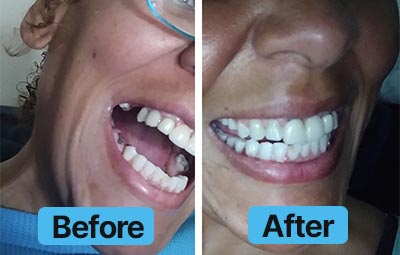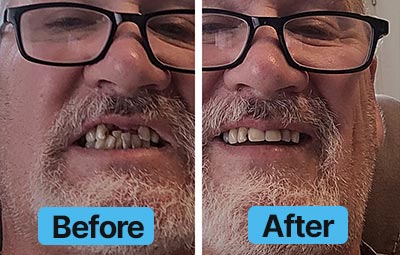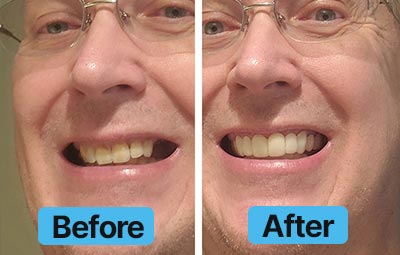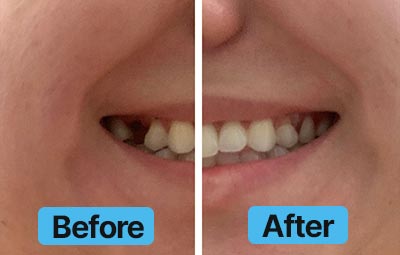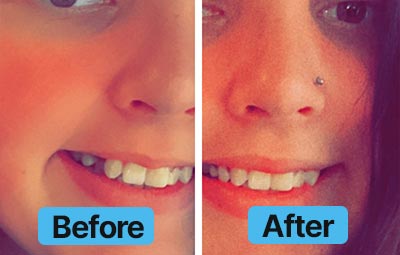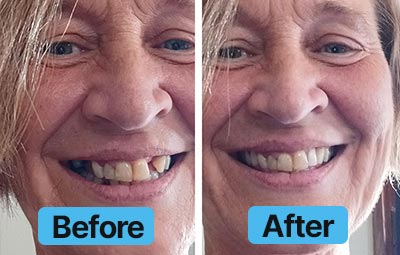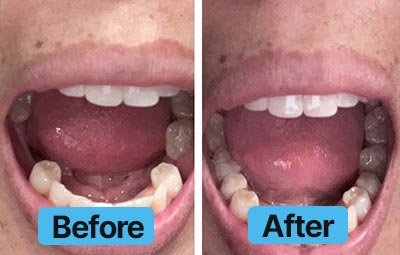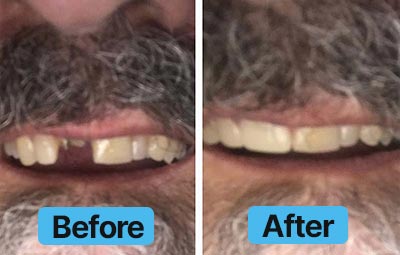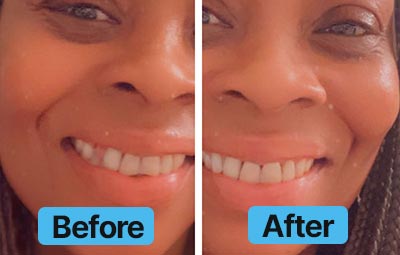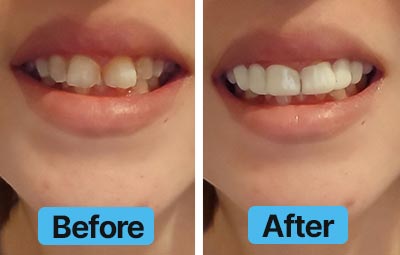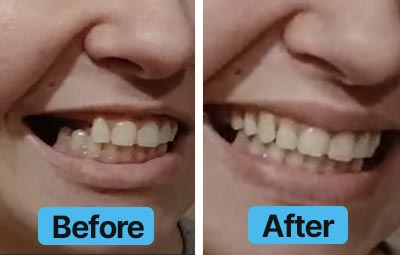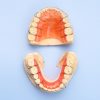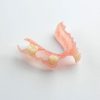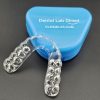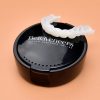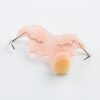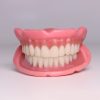used to wearing your partial or full dentures (and even enjoy life with them).
Why New Dentures Feel Strange at First
Whether you have full dentures (replacing all your upper or lower teeth) or partial dentures (replacing some missing teeth), they will likely feel odd when you first start wearing them.
Common early complaints include a feeling of bulkiness or looseness, extra saliva in your mouth, slight soreness in your gums, and difficulty speaking clearly.
Don’t worry, though, because these issues are a normal part of the break-in period. Your mouth is incredibly adaptable, but it may take a few weeks for your gum tissues and muscles to get used to the dentures’ presence.
At first, you could notice a heightened gag reflex or a feeling that your tongue has less room. Minor gum irritation is also common. This initial adjustment period typically lasts a couple of weeks and improves gradually each day.
However, if you experience sore spots or rubbing that do not improve after several weeks, there may be a problem with the fit. Dentures can be adjusted to eliminate pressure points, either by following up with your dentist or using Quick Reline to easily fix loose-fitting dentures at home.
If discomfort or slippage continues, small adjustments can make a big difference in how your dentures feel and function.
What Helps Most When You’re New to Wearing Dentures
Like learning any new skill, feeling like yourself again when wearing dentures will take time and practice.
Here are some things you can do to practice:
- Eat soft foods for the first couple of weeks
- Talk out loud when you’re by yourself
- Use a denture adhesive, if needed
- Have a positive outlook
1. Start with Soft Foods
For the first week or two, stick to a diet of softer foods that don’t require vigorous chewing and cut food into small, bite-sized pieces. This gives you a chance to learn how to chew with dentures without putting too much pressure on your gums.
According to the American Dental Association (ADA) and several public health agencies, it’s not unusual to have minor soreness at first, and starting with small bites of soft foods can help you ease into eating with dentures. Then, gradually introduce firmer foods as your confidence grows.
Soon, you’ll likely find it easier to enjoy a wider range of foods, even those that once seemed off-limits with dentures.
2. Talk Out Loud
Talking while wearing dentures may feel funny initially since you might lisp or stumble over certain words, but a great way to overcome this is to practice reading out loud to yourself.
Pick up a book or newspaper and read for a few minutes each day. Repeating difficult words helps your tongue and lips adjust to the new teeth. You can also practice speaking in front of a mirror!
The more you speak with your dentures, the faster your pronunciation will normalize. Most people report that within a few weeks, they’re speaking just as clearly as before.
3. Try Denture Adhesive if Your Dentures Are Loose
If your new dentures feel loose or you worry about them slipping, you can use a denture adhesive to keep them in place.
All you need is a small amount applied to your dentures. And as you get used to your dentures, you may find you rely on adhesive less and less, or not at all.
But starting out, it’s an incredibly helpful tool, especially when you need that boost of confidence.
4. Have a Positive Outlook
Perhaps the most important tip we can tell you is to stay patient with yourself. Adapting to dentures is a learning curve, and there may be moments of frustration throughout the experience, but you need to remind yourself that every day with dentures will get easier.
To stay positive, celebrate small wins (e.g., “Hey, I ate a sandwich today without discomfort!”) and give it a little time. Many denture wearers say that after a month or so, wearing dentures starts to feel quite natural because your gum tissue will toughen up, your tongue will adapt, and your chewing and speaking skills will improve.
So stay positive; you’ll get there!
Final Thoughts
Adjusting to wearing dentures is a journey that requires patience, but before you know it, your dentures will feel like a natural part of you. So hang in there—each day gets a little easier, and your effort will pay off with the freedom to laugh, enjoy your meals, and live fully with a confident smile.
When you’re ready to explore high-quality full or partial dentures without the dental markup, Dental Lab Direct makes it simple to order custom dentures from the comfort of your home. Check us out today!
 60 DAY warranty on all custom-made products | 1,000+ 5 Star ★★★★★ Reviews
60 DAY warranty on all custom-made products | 1,000+ 5 Star ★★★★★ Reviews

